Sir James Bevan spoke today (12 April) at a webinar hosted by the Environment Services Association (ESA).
He said: “Our ability to fight criminals ultimately depends on our resourcing. We’re keen to explore whether the industry – the legitimate waste industry – could provide some funding, either through regulatory charges or direct to us, that would allow us to better protect industry and businesses against the criminals who undercut them.”
According to Sir James, an estimated 18% of waste in the UK is managed illegally, representing around 34 million tonnes each year.
During the webinar, Sir James described waste crime as “the new narcotics”, as he has previously.
He outlined the Agency’s new strategy for tackling waste crime, which he said targeted criminals rather than waste, worked “further upstream”, and took a national rather than local approach, using technology such as drones and heat sensitive cameras.
He said: “We are aiming not just to eliminate the criminal and the crime but to eliminate the waste as well, by transforming what is often a liability into an asset that – used in the right way as a resource – can help enhance everyone’s prosperity and create a cleaner greener world.”
Exports
Sir James also suggested he would like the ending of waste exports from the UK. “I think we should set ourselves the challenge of getting as soon as possible to a position where we process all our waste at home and end all waste exports,” he said.
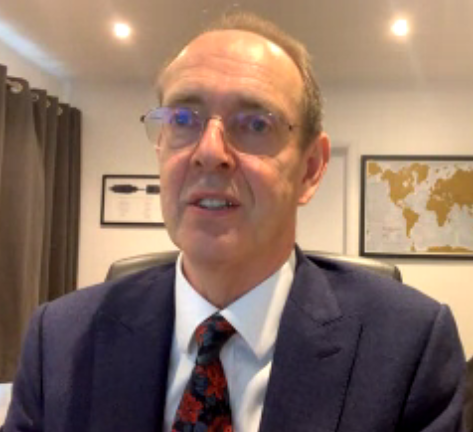
Illegal exports caused “reputational damage” to the waste sector, made criminals “a lot” of money, and diverted Environment Agency resources from other areas, he said. On exports, Sir James suggested the waste sector was “innovative and inventive” enough to find alternatives.
This proposal was questioned by other panellists, including Gavin Graveson, chair of the ESA and Veolia’s senior executive for Northern Europe, and Mike Brown, managing director of consultancy Eunomia.
Campaign
Despite holding different opinions about exports, Mr Graveson said the ESA was “right behind” the Environment Agency’s targeted campaign to stamp out waste crime.
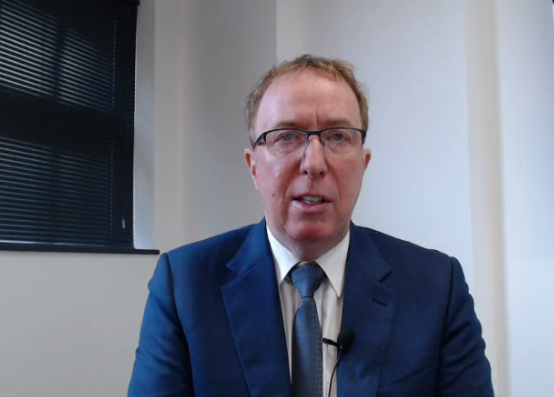
He said: “We welcome the EA’s determination to target the criminal and not the waste and support the 4Ps – namely, prepare, prevent, protect, and pursue – which we as an industry can play an active role in supporting.
“The ESA is on the ground operating in every local community, and we can help the EA prepare the intelligence to initiate the EA’s investigations to close down illegal waste sites in local areas.”
Mr Graveson said the “single biggest change” which would deliver the most impact was stronger enforcement against illegal activity, where “the fine must fit the crime”.
“If waste crime is the new narcotics, then the penalties and prosecutions must be similar to reflect the considerable harm caused to the environment and local communities,” he said.
The government’s planned reforms to the carriers, brokers and dealers (CBD) system will help “close one of the biggest loopholes” in sector with enhanced checks based on a permit-based approach, Mr Graveson said (see letsrecycle.com story).
He also suggested stricter duty of care requirements for producers of waste would stop criminals getting their hands on materials and prevent crime at its source.
Finances
Mr Brown picked up the issue of Environment Agency resources during his presentation. He pointed to Eunomia’s latest report on waste crime in the UK, published in 2021, which suggested associated costs increased to £924m in 2018/19 (see letsrecycle.com story). Costs associated with fly-tipping alone increased by £200m, he said.
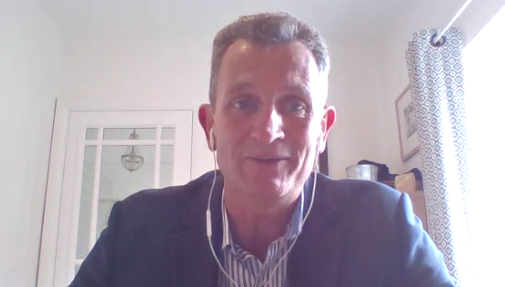
Mr Brown said the Agency had “inadequate resources” to tackle waste crime, with only 3% of its current budget assigned to address the problem.
“I do think it’s in the legitimate industry’s interest for waste crime to be properly resourced,” he said. “Money is key. There are inadequate resources to tackle waste crime and that leads to inadequate enforcement.”
Mr Brown said there was an urgent need to reform the CBD system, enforce Duty of Care and waste tracking requirements, and invest in the Agency and the Joint Unit for Waste Crime (JUWC).
He suggested he was pleased the government had planned reforms within these areas but described the policies as “embarrassingly overdue”.
JUWC
Joanna Larmour, deputy director of the Environment Agency’s National Enforcement Service, addressed the webinar as a member of the JUWC, which was launched in January 2020 and comprises nine enforcement partners and two industry partners in the ESA and the Chartered Institution of Wastes Management (see letsrecycle.com story).

Ms Larmour emphasised the importance of a “multi-agency approach” given the “polycriminality” of waste crime, which can also involve burglary, drugs supply, money laundering, and even murder.
She said: “This is not a fight we can win alone. The best chance we have is to pull together.”





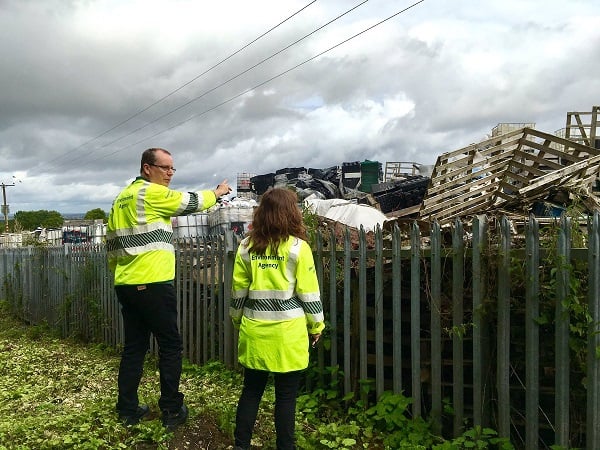

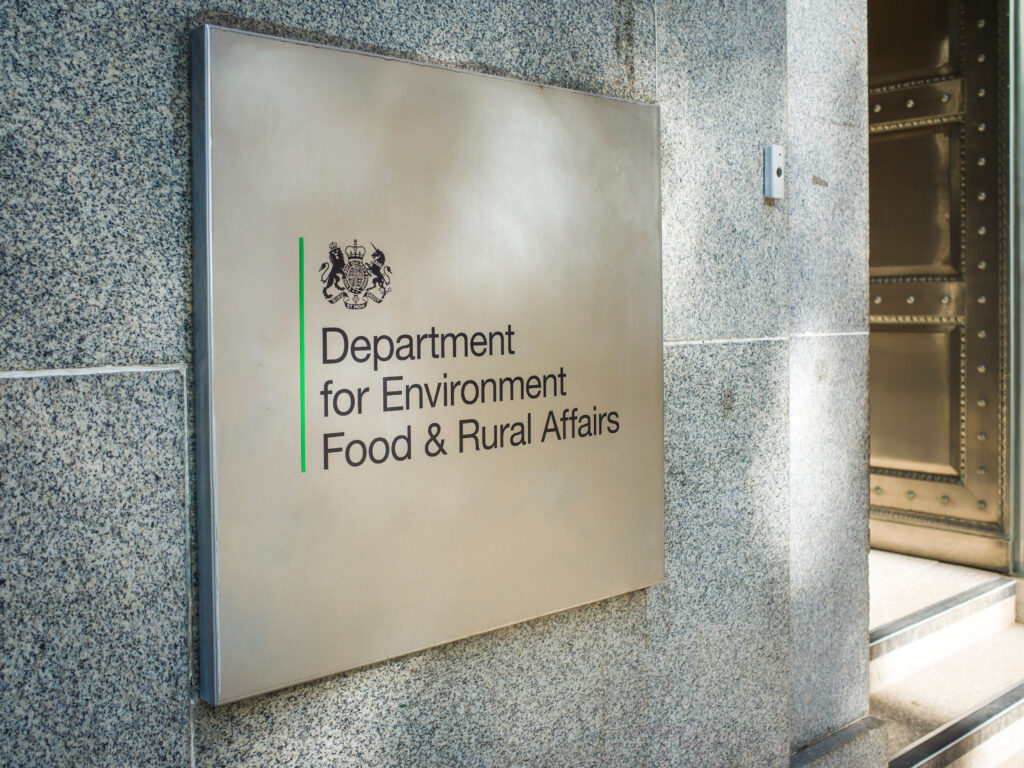
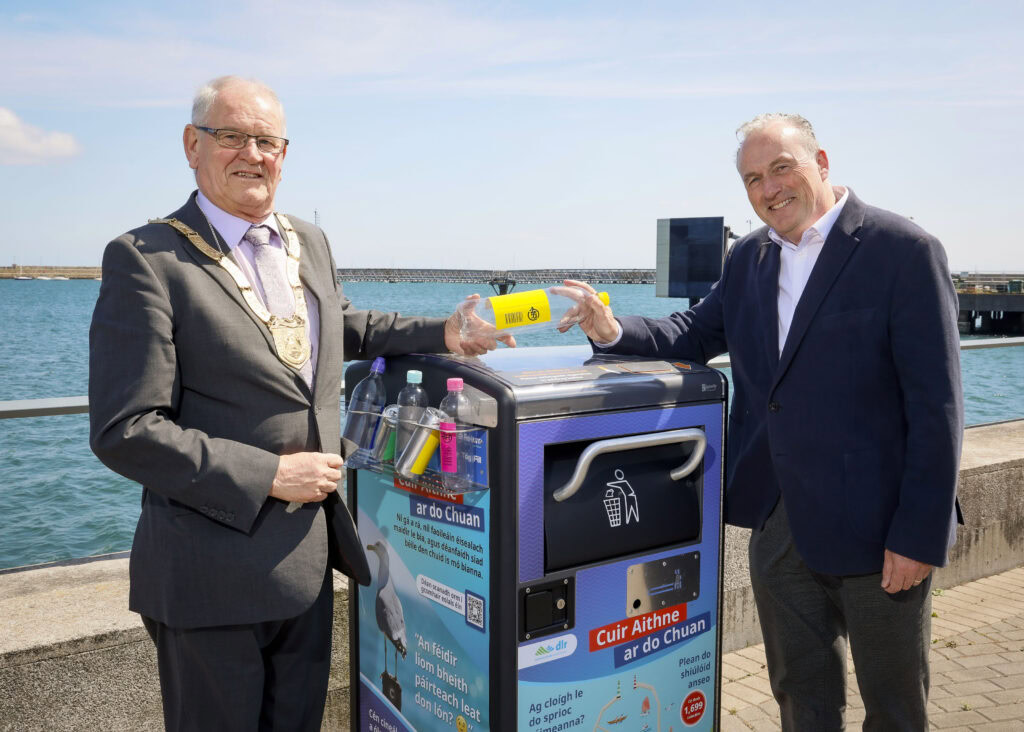

Subscribe for free